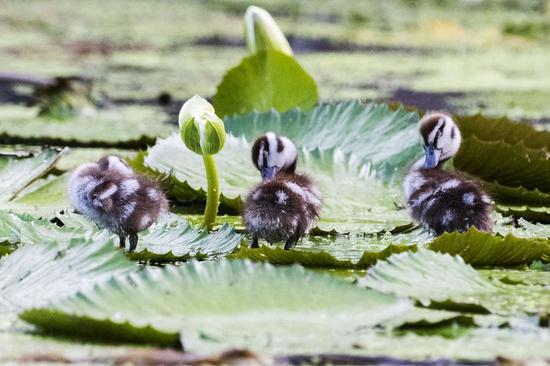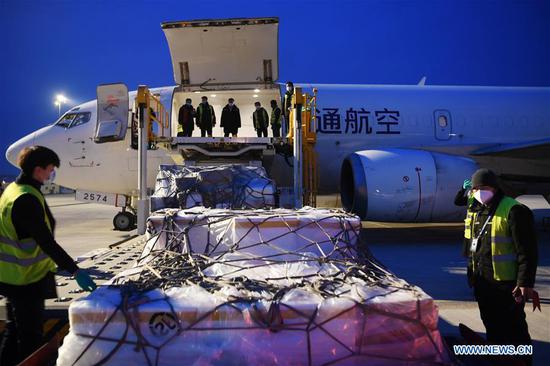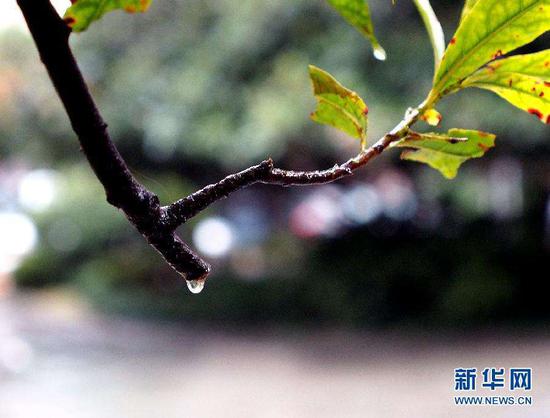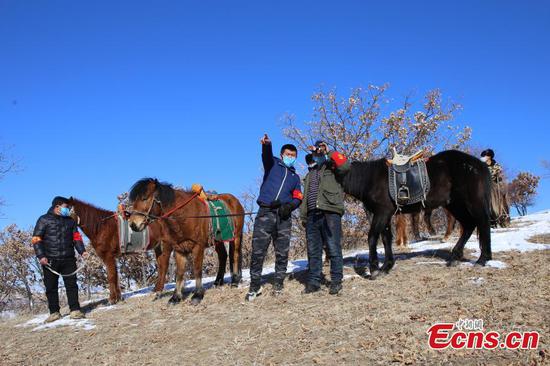INTERNATIONAL COOPERATION URGED
The desert locust swarms have travelled from Africa to Asia. India is suffering the worst hit in 60 years.
"Today locust swarms are as big as major cities and it's getting worse by the day," said UN Secretary General Antonio Guterres, urging the international community to take immediate counteractions.
Sacko Josefa, AU Commissioner for Rural Economy and Agriculture, said earlier this month that the 55-member pan-African bloc is working directly with the FAO to make sure that there is no spread to other countries.
Antonio Querido, UN FAO representative in Uganda, said international organizations are providing technical support and mobilizing resources for Uganda as it strives to fight the locusts.
In order to get more international help, Somalia on Feb. 2 declared the locust infestation a national emergency.
Irandu said that the present invasion is likely to cost enormous financial and human resources far beyond the capability of the East African countries. Hence there is a need for a concerted effort by regional and other international organizations to offer money, expertise and equipment such as planes. Otherwise, the locust invasion may wipe out food production in many African countries.
The FAO recently launched a 76 million U.S. dollars appeal to control the locusts' spread. Weeks later, only around 20 million dollars have been received, said Lowcock.
Irandu suggested that intensified international efforts should be made to coordinate aerial sprays, share scientific knowledge on breeding and migratory habits of locusts, and raise funds from partners.
In the long run, experts have called for the investment in research to contain the impacts of climate change, including the locusts invasion.
"People must be sensitized adequately on their roles in adaptation and mitigation programs to ensure uniformity in progress," said Edward Mungai, chief executive officer of Kenya Climate Innovation Center.




















































